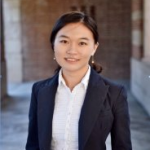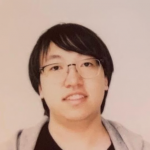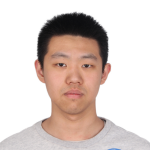The University of Washington site of IFDS is funding new Research Assistants in the Spring 2021 term to collaborate across disciplines on IFDS research. Each one is advised by a primary and a secondary adviser, who are members of IFDS.
Jillian Fisher

Jillian Fisher (Statistics) works with Zaid Harchaoui (Statistics) and Yejin Choi (Allen School for CSE) on dataset biases and generative modeling. She is also interested in nonparametric and semiparametric statistical inference.
Yifang Chen

Yifang Chen (CSE) works is co-advised by Kevin Jamieson (CSE) and Simon Du (CSE). Yifang is an expert on algorithm design for active learning multi-armed bandits in the presence of adversarial corruptions. Recently she has been working with Kevin and Simon on sample efficient methods for multi-task learning.
Guanghao Ye
 Guanghao Ye (CSE) works with Yin Tat Lee (CSE) and Dmitriy Drusvyatskiy (Mathematics) on designing faster algorithms for non-smooth non-convex optimization. He is interested in convex optimization. He developed the first nearly linear time algorithm for linear programs with small treewidth.
Guanghao Ye (CSE) works with Yin Tat Lee (CSE) and Dmitriy Drusvyatskiy (Mathematics) on designing faster algorithms for non-smooth non-convex optimization. He is interested in convex optimization. He developed the first nearly linear time algorithm for linear programs with small treewidth.
Josh Cutler
 Josh Cutler (Mathematics) works with Dmitriy Drusvyatskiy (Mathematics) and Zaid Harchaoui (Statistics) on stochastic optimization for data science. His most recent work has focused on designing and analyzing algorithms for stochastic optimization problems with data distributions that evolve in time. Such problems appear routinely in machine learning and signal processing.
Josh Cutler (Mathematics) works with Dmitriy Drusvyatskiy (Mathematics) and Zaid Harchaoui (Statistics) on stochastic optimization for data science. His most recent work has focused on designing and analyzing algorithms for stochastic optimization problems with data distributions that evolve in time. Such problems appear routinely in machine learning and signal processing.
Romain Camilleri

Romain Camilleri (CSE) works with Kevin Jamieson (CSE), Maryam Fazel (ECE), and Lalit Jain (Foster School of Business). He is interested in robust high dimensional experimental design with adversarial arrivals. He also collaborates with IFDS student Zhihan Xiong (CSE).
Yue Sun

Yue Sun (ECE) works with Maryam Fazel (ECE) and Goiehran Mesbahi (Aeronautics), as well as collaborator Prof. Samet Oymak (UC Riverside). Yue is currently interested in two topics: (1) understanding the role of over-parametrization in meta-learning, and (2) gradient-based policy update methods for control, which connects the two fields of control theory and reinforcement learning.
